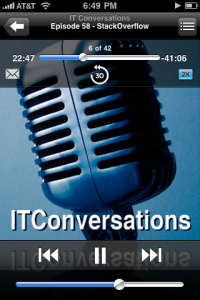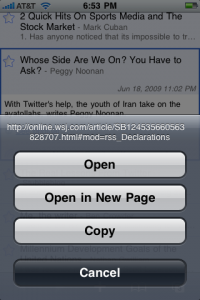My friend Cam has started a cause called Fight the New Drug (FTND). That “New Drug” is pornography, and their approach parallels the fight against tobacco.
This is about changing the messaging. For example, if smoking is a way to rebel against authority, then parents and medical experts saying Don’t smoke! only reinforces the rebellion. But if smoking is succumbing to executives at Big Tobacco, then smoking isn’t a form of rebellion at all, it’s a form of conformity. What rebellious kid wants to conform to Big Tobacco executives? That’s the message of The Truth campaign.

Imagine a similar change of messaging around pornography: Pornography isn’t glamorous, it isn’t sexy. Love and romance without pornography is glamorous and sexy. By making the negative externalities of pornography more visible, it would become less appealing. While organizations like CP80 and Lighted Candle Society fight the supply-side of pornography, FTND fights the demand-side.
I’m very excited about this approach.
Mary Eberstadt at Stanford’s Hoover Institution calls pornography the “new tobacco” and said:
Yesterday, smoking was considered unremarkable in a moral sense, whereas pornography was widely considered disgusting and wrong — including even by people who consumed it. Today, as a general rule, just the reverse is true. Now it is pornography that is widely (though not universally) said to be value-free, whereas smoking is widely considered disgusting and wrong — including even by many smokers.
Can we change minds again?
Columnist Kathryn Jean Lopez said:
…I’ve been flashing back to something Traci Lords once said: “I have to thank Ed Meese for saving my life.” At 18, her career as a porn star ended in a federal raid. How many Tracis are on a computer near you today? And who else is porn harming? It’s a question that our society — which in its rhetoric and culture says it cares about women and children and lives and love — needs to grapple with. If Eberstadt’s comparison is right, the time [is] coming. The shrugs will cease. Yet I hope the turnaround comes, not because the government has made porn highly inconvenient, but because we have decided we want something better. (Smoking Is Out, Porn Is In.)
Seth Godin said you can’t fight an ideavirus (“pornography is okay”) by “challenging the medium in which it spreads.” Instead, you must counter “one ideavirus with another one.”
You don’t counter racism by making the act of uttering racist statements against the law. You do it by spreading an idea (racism is hateful, wrong and stupid) that keeps the racist from expressing his ideas because all his friends will shun him if he does. (“Thinking about this war”.)
Here is some of the FTND messaging, paraphrased:
1. Educate people about the negative effects of pornography and let them choose their pornography involvement for themselves. We do not contest the legality to produce pornographic material.
2. Just because it’s legal to smoke cigarettes, doesn’t mean it’s healthy. Similarly, porn can have devastating effects on you and your loved ones.
3. Although pornography consumption can lead to powerful addictive behaviors, we don’t contest people’s right to view it.
4. People need to be educated about the negative effects of pornography on individuals, families and businesses.
5. We fight against the demand for pornography. Through education, we believe people will no longer want to use porn and those with addictive behavior will seek help from professionals.
6. People addicted to porn often feel they have no options. We’re letting people know that they have a choice.
7. We want to infuse more sexiness into the world. Two committed people together — that is sexy. A lonely, addicted person sitting in front of a computer is not sexy.
Please make a $10 donation to FTND to become a “fighter”. Ten dollars from 1,000 people is better than $10,000 from 1 person. The money will be used to develop messaging campaigns to fight the demand for pornography. This will be a grass-roots movement to make pornography unpopular.
I’ve put in my $10 and I’m hoping many, many more friends will as well.






